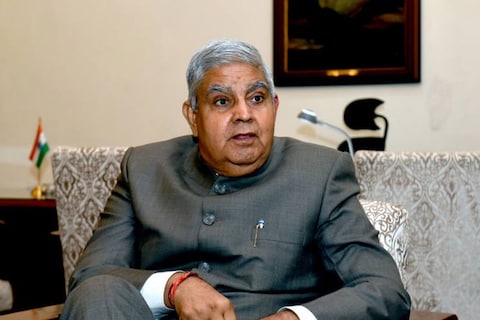Vice President and Rajya Sabha Chairman Jagdeep Dhankhar directed the circulation and publishing of the 246th Report on ‘The Bharatiya Nyaya Sanhita, 2023,’ the 247th Report on ‘The Bharatiya Nagarik Suraksha Sanhita, 2023,’ and the 248th Report on ‘The Bharatiya Sakshya Bill, 2023’ on Saturday. Brij Lal, Rajya Sabha MP and Chairman of the Department-related Parliamentary Standing Committee on Home Affairs, submitted the findings on Friday.
“Hon’ble Vice President of India and Chairman, Rajya Sabha, Shri Jagdeep Dhankhar, has directed the circulation and publication of the following three reports: the 246th Report on ‘The Bharatiya Nyaya Sanhita, 2023’, the 247th Report on ‘The Bharatiya Nagarik Suraksha Sanhita, 2023’, and the 248th Report on ‘The Bharatiya Sakshya Bill, 2023’, submitted on November 10, 2023, by Shri Brij Lal ji, Member Parliament (RS) and Chairman of the Department-related Parliamentary Standing Committee on Home Affairs,” the Vice President posted on ‘X’.
Home Minister Amit Shah introduced these bills in the Lower House of Parliament on August 11, with the aim of replacing the Indian Penal Code (IPC) 1860, Code of Criminal Procedure (CrPC), 1973, and the Indian Evidence Act, 1872, respectively. The proposed laws emphasize safeguarding citizens’ constitutional rights and providing justice.
The Bharatiya Nagarik Suraksha Sanhita Bill, which will replace CrPC, now comprises 533 sections, incorporating 160 amendments, nine new sections, and repealing nine sections. Similarly, the Bharatiya Nyaya Sanhita Bill, set to replace the IPC, encompasses 356 sections, reflecting 175 amendments, eight new sections, and the repeal of 22 sections.
Additionally, the Bharatiya Sakshya Bill, aiming to replace the Evidence Act, now includes 170 sections, with 23 modifications, one new section, and the repeal of five sections. Minister Shah underscores that these changes aim to prioritize justice over punishment, steering away from the punitive approach embedded in British-era laws.
The release of these reports marks a crucial step in the legislative process, emphasizing the commitment to a comprehensive overhaul of key legal frameworks.







